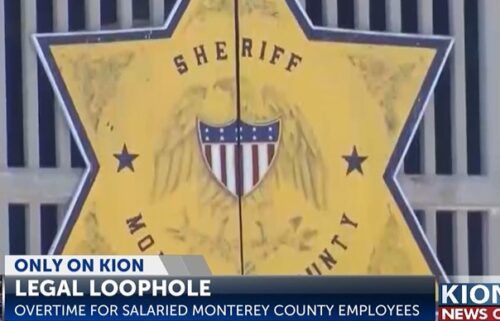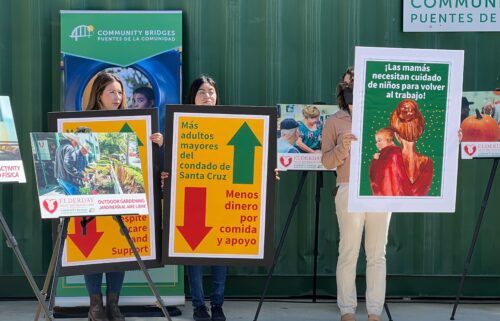Carmel will reduce its partnership with Flock Security placing a new budget cap
CARMEL-BY-THE-SEA, Calif. (KION-TV) -- The City of Carmel has approved a new two-year contract with Flock Safety, dramatically reducing the number of license plate cameras within the city. The new plan looks to cut the total from 30 cameras down to just six.
The city will maintain a budget cap of $30,000 for this arrangement, with the potential to add six additional cameras around the perimeter of the city if needed.
The decision follows recent data highlighting the effectiveness of Flock Safety cameras in crime detection. Over the past 30 days, the cameras have tracked over 119,000 vehicles. Among those, 147 vehicles were flagged as being associated with individuals listed on law enforcement's hot list for serious crimes.
Carmel’s Chief of Police, Paul Tomasi, weighed in on the decision, explaining via email that while the initial contract called for 30 cameras, the number proved to exceed the village's needs. "The initial contract was for 30 cameras, although that provides a lot of security, it was a lot of cameras for our village," Tomasi stated.
"The initial contract was for 30 cameras, although that provides a lot of security it was a lot of cameras for our village. Additionally, the cameras are placed throughout downtown and the residential area, on poles with large solar panels. The community is very concerned with the overall look of the cameras as it takes away from the aesthetic of the village. Placing cameras on the perimeter has less of a visual impact on the village and still provides us with a tool to help us (the Police) protect the village."
Carmel Chief of Police Paul Tomasi
He further noted the aesthetic concerns within the community, saying the cameras' placement, particularly in the downtown and residential areas, on poles with large solar panels, was a point of contention. Many residents expressed concerns about the cameras detracting from the village’s visual appeal.
"Placing cameras on the perimeter has less of a visual impact on the village and still provides us with a tool to help us (the Police) protect the village," Tomasi added.
This new approach will allow the police department to continue using technology to aid in public safety while minimizing its impact on the village's overall appearance.
New privacy concerns raised over FLOCK cameras in Carmel
CARMEL-BY-THE-SEA, Calif. (KION-TV) -- A new plan for 24 license reading cameras in Carmel-By-The-Sea is making residents concerned over their privacy.
Carmel-by-the-Sea’s ad hoc committee on FLOCK cameras came together to share privacy concerns they have about the technology.
Council previously approved the program back in 2018.
The city recently approved a plan for 24 more cameras for a two-year contract of more than $146 thousand dollars.
“Once they started going up, we realized that it wasn't the quite the look that we wanted or we weren't sure of. And so we've called it back. And now we're having a community engagement to find out how many the city wants,” Mayor Pro Tem Bobby Richards said.
The concerns from people living in the city ranged from the selling of data and the need for such a technology.
Another concerning the potential future use of facial recognition software.
“There’s nothing that keeps these companies from in the future turning on something like facial recognition,” Carmel resident Joseph Owens said. “Obviously there's contractual things like that, but they're basically building the infrastructure and the hardware and software and all of that to be able to serve something like that in the future.”
Carmel-By-The-Sea Police Chief Paul Tomasi hopes to add six cameras to the downtown area and create an opt-out program for residents to remove their license from the system.
Other cameras would be installed on existing PG&E poles in the city.
“Let’s focus on phasing it in. Let's work on the perimeter, which we already have cameras, but then we can maybe expanded downtown if needed and then reassess each year,” Tomasi said. “Is it working? What's the value of it? Right. Because you want to value what you're spending versus public safety. That's important. So we're balancing that.”
Chief Tomasi will now send his recommendations for the project to the city council on December 3.





